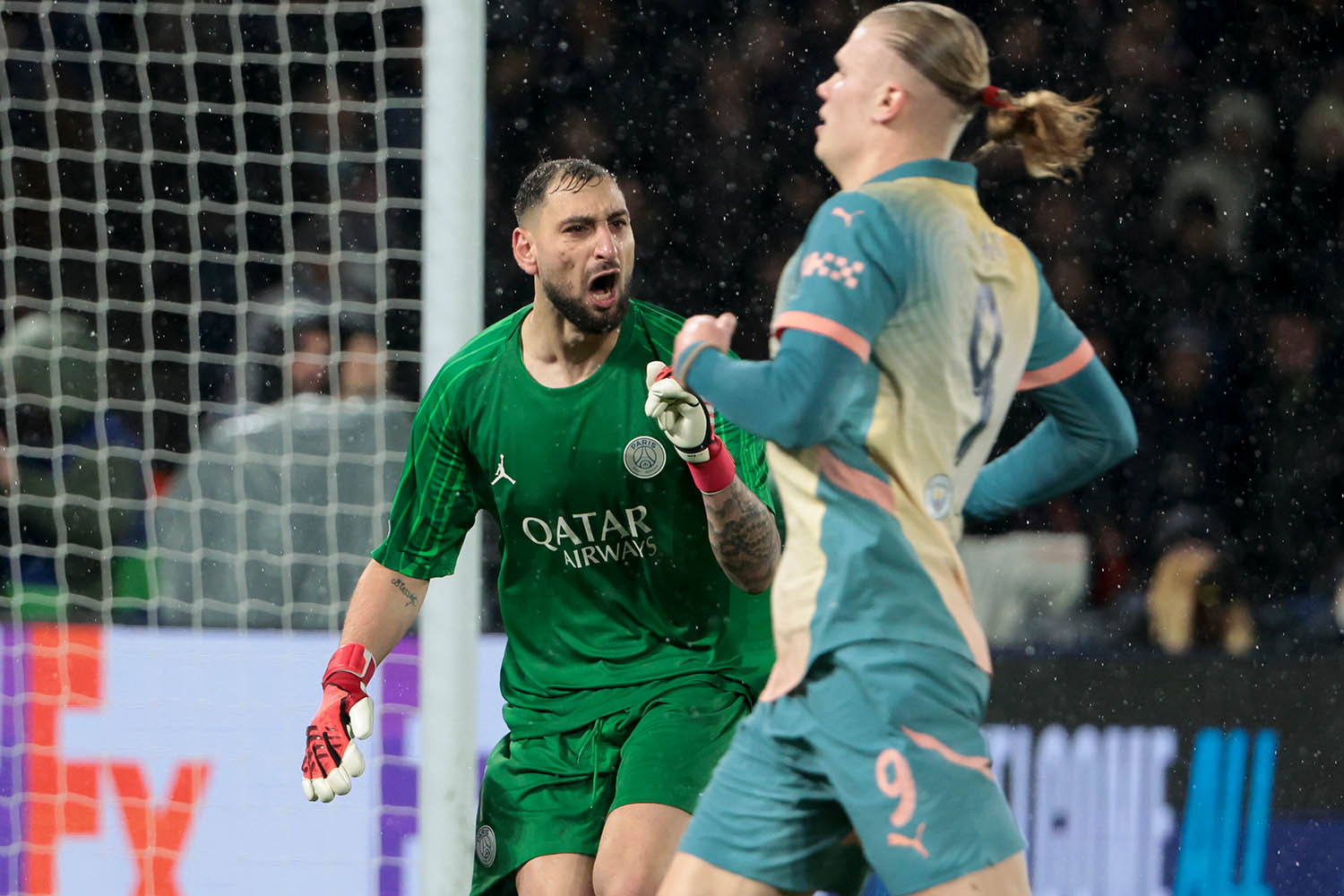And so, after nine glorious years and six Premier League titles, Pep Guardiola has finally come full circle. His champagne-soaked spell at Manchester City has served as the most prolific crucible of innovation English football has ever known. While the Catalan might be running out of time to surpass Sir Alex Ferguson as the most successful manager in English history, he may well already be the most influential.
It was Guardiola, after all, who popularised the inverted full-back, and the goalkeeper as a creator, and the striker who wasn’t really a striker. He preached control and patience and, as the trophies flooded in, he found his values and his ideas percolating throughout the pyramid. He needed less than a decade to remake English football in his image.
There is, then, something inherently jarring that the City team he will send out to face Manchester United at the Etihad Stadium today will most likely boast Gianluigi Donnarumma at one end of the pitch and Erling Haaland at the other. Neither really fits the traditional definition of a Guardiola player.
Certainly, it was difficult not to see the deadline-day signing of Donnarumma, the towering, ursine Italian goalkeeper, as evidence of a complete volte-face. One of Guardiola’s immediate priorities at City, after all, was to replace Joe Hart – then England’s first-choice goalkeeper – with first Claudio Bravo and later Éderson. His goalkeepers, he made clear, needed to be able to play.
A European champion for both club and country, Donnarumma has many undoubted qualities, but his playmaking is not among them. His coach at PSG, Luis Enrique, acknowledged as much in explaining why the Italian was being allowed to leave. PSG needed a goalkeeper with a “different profile”, he said.
Perhaps Guardiola’s reversion to a more traditional model is proof that the old virtues were right all along; maybe as Pep was changing English football, so English football was changing him. The game always reflects the culture around it, after all. In a country suddenly festooned with flags, perhaps a huge goalkeeper lashing the ball forward for a longship of a forward to chase is au courant.
Or perhaps it is something different. There have been plenty of times in the last few years when it has been possible to believe that Guardiola has found success so easy that he has taken to setting himself little challenges simply to maintain his interest.
Other interpretations are available. A few years ago, the ride-share company Lyft announced with great fanfare its latest idea: a vehicle that would travel along a set route in San Francisco, picking up and dropping off customers at specific places. They had, in effect, invented the bus. Maybe this is Guardiola’s equivalent; he has innovated so much he is now reshaping old ideas.
Or maybe Donnarumma’s style of goalkeeping is not as relevant to Guardiola as his experience, his indomitability. Maybe the most useful parallel for his signature is not the arrival of Éderson, and the transformation in style it prompted, but Manchester United’s capture of Robin van Persie in 2012. Maybe his arrival was at the behest of a club starting to think what a future without Guardiola might look like.
Or, quite possibly, the whole thing is not quite such a stark departure from what has gone before as it appeared at first glance.
Newsletters
Choose the newsletters you want to receive
View more
For information about how The Observer protects your data, read our Privacy Policy
He has not, in truth, been especially wedded to his signature style ever since he left Barcelona. In England, his City team spent a couple of years playing a back line comprising four central defenders, a move initially pioneered by Tony Pulis.
Having disavowed pure strikers, Guardiola added Haaland to a championship-winning team in pursuit of the Champions League.
He has always made it clear that he plays the way he does not because it is pretty, but because it is effective. “I am not here for entertainment,” he said, all the way in 2017, “I am here to win.” That is why he has always changed, always innovated. Maybe this is the final measure of how much he has changed English football: that the ultimate edge, now, is in adopting what went before.



